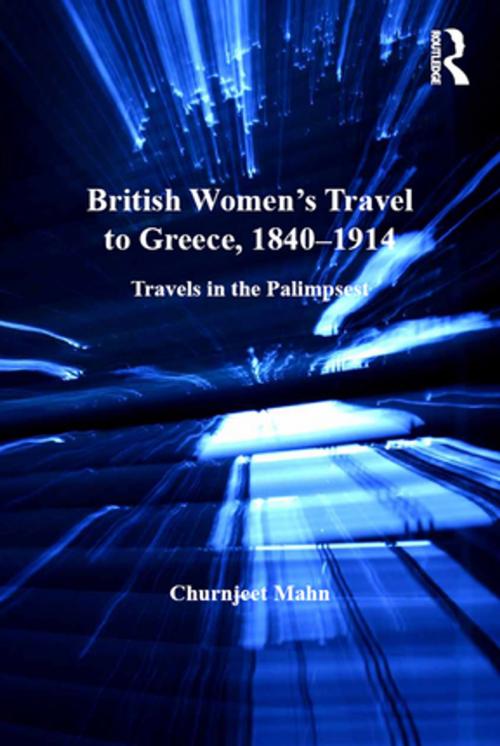British Women's Travel to Greece, 1840-1914
Travels in the Palimpsest
Fiction & Literature, Literary Theory & Criticism| Author: | Churnjeet Mahn | ISBN: | 9781317171270 |
| Publisher: | Taylor and Francis | Publication: | April 15, 2016 |
| Imprint: | Routledge | Language: | English |
| Author: | Churnjeet Mahn |
| ISBN: | 9781317171270 |
| Publisher: | Taylor and Francis |
| Publication: | April 15, 2016 |
| Imprint: | Routledge |
| Language: | English |
Beginning with the publication of the first Murray guidebook to Greece in 1840 and ending with Virginia Woolf's journey to Athens, this book offers a genealogy of British women's travel literature about Greece. Churnjeet Mahn recounts the women's first-hand experiences of the sites and sights of antiquity, analyzing travel accounts by archaeologists, ethnographers, journalists, and tourists to chart women's renderings of Modern Greece through a series of discursive lenses. Mahn's offers insights into the importance of the Murray and Baedeker guidebooks; how knowledge of Greece and Classical Studies were used to justify colonial rule of India at the same time that Agnes Smith Lewis and Jane Ellen Harrison used Greece as a symbol of women's emancipation; British women's production of the first anthropological accounts of Modern Greece; and fin-de-siècle women who asserted their right to see and claim antiquity at the same time that the safety of the independent lady traveler was being called into question by the media.
Beginning with the publication of the first Murray guidebook to Greece in 1840 and ending with Virginia Woolf's journey to Athens, this book offers a genealogy of British women's travel literature about Greece. Churnjeet Mahn recounts the women's first-hand experiences of the sites and sights of antiquity, analyzing travel accounts by archaeologists, ethnographers, journalists, and tourists to chart women's renderings of Modern Greece through a series of discursive lenses. Mahn's offers insights into the importance of the Murray and Baedeker guidebooks; how knowledge of Greece and Classical Studies were used to justify colonial rule of India at the same time that Agnes Smith Lewis and Jane Ellen Harrison used Greece as a symbol of women's emancipation; British women's production of the first anthropological accounts of Modern Greece; and fin-de-siècle women who asserted their right to see and claim antiquity at the same time that the safety of the independent lady traveler was being called into question by the media.















